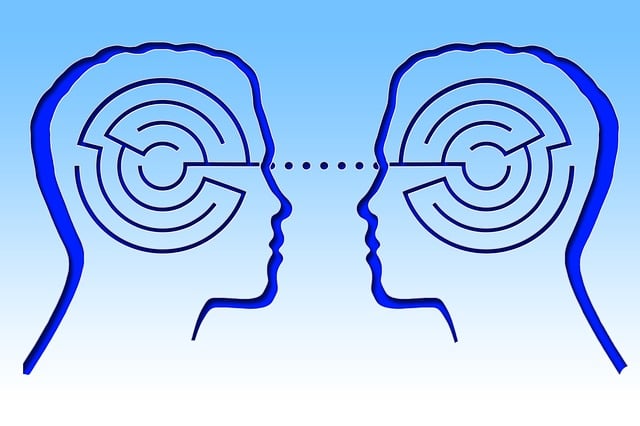The Endocannabinoid System (ECS) is a critical network that maintains internal equilibrium in the body, affecting mood regulation, pain perception, and stress responses. Key components include endocannabinoids, receptors, enzymes, and neurotransmitters like anandamide. Imbalances in the ECS are linked to depression and anxiety, offering potential therapeutic benefits for these disorders. Cannabis interacts with the ECS through its compound THC, binding to CB1 receptors in the brain, impacting mood and well-being. Understanding the ECS is pivotal for developing innovative treatments, combining neuroimaging and genetic studies, and personalizing therapies based on individual variations. By recognizing the mind-body connection, individuals can holistically support their ECS through diet, lifestyle, and supplements, promoting mental resilience and balance.
Unveiling the intricate workings of the endocannabinoid system (ECS) is key to deciphering our body’s complex mood regulation. This vast network, a true symphony of neurochemicals, plays a pivotal role in maintaining emotional balance. By exploring the ECS’s influence on mood, we gain insights into the potential therapeutic applications of cannabis and its compounds. This article delves into the latest research, offering a comprehensive understanding of the endocannabinoid system and its implications for managing mood disorders while highlighting future directions in neuropsychopharmacology.
Unveiling the Endocannabinoid System: A Complex Network

The Endocannabinoid System (ECS) is a complex network of cell receptors and endogenous cannabinoids that play a crucial role in maintaining homeostasis, or balance, within our bodies. It’s not just about getting high; this system influences everything from mood and memory to appetite and pain perception. Understanding the ECS is key to unlocking the potential therapeutic benefits it offers for various conditions, from chronic pain to anxiety disorders.
This intricate system acts as a kind of internal ‘feedback loop’, constantly regulating and adjusting our physiological processes. When something disrupts this balance, like stress or injury, the ECS steps in to restore order. By binding to specific receptors, cannabinoids can modulate neural activity, influence hormone release, and even interact with other neurotransmitter systems, ultimately affecting our emotional state and overall well-being.
The Role of Endocannabinoids in Regulating Mood

The Endocannabinoid System (ECS) plays a pivotal role in regulating mood and emotional responses, offering a complex mechanism that helps maintain balance within the brain. This system is comprised of endocannabinoids, receptors, and enzymes that work together to modulate various physiological processes, including mood, memory, appetite, and pain sensation. One of the key players is the neurotransmitter anandamide, known for its role in inducing feelings of pleasure and well-being. When released, anandamide binds to CB1 receptors in areas of the brain associated with reward, motivation, and emotion regulation, such as the amygdala and nucleus accumbens.
Understanding the ECS is crucial in comprehending how our bodies naturally manage mood fluctuations. Imbalances or dysregulation within this system have been linked to mood disorders like depression and anxiety. Research suggests that exogenous cannabinoids (compounds similar to endocannabinoids) can interact with this system, providing potential therapeutic benefits. By modulating CB1 receptors, these compounds may help alleviate symptoms of mood disorders, offering a promising avenue for future treatments in the field of mental health.
How Cannabis Interacts with the Endocannabinoid System

Cannabis has a unique relationship with the human body due to its interaction with the endocannabinoid system (ECS). This intricate system is made up of endocannabinoids, receptors, and enzymes that play a significant role in maintaining homeostasis, or balance, within our bodies. One of the key players in this system is the receptor CB1, which is abundant in the brain and central nervous system, influencing mood, memory, and cognition.
When cannabis is consumed, its compounds, particularly tetrahydrocannabinol (THC), bind to these CB1 receptors. This interaction can lead to various effects on mood and emotion. THC’s ability to attach to these receptors is what produces the psychoactive experiences associated with cannabis use. However, the ECS also has a regulatory function, and when activated by cannabis or endocannabinoids produced naturally by the body, it can help maintain emotional balance and well-being.
Exploring the Therapeutic Potential for Mood Disorders

Exploring the Therapeutic Potential for Mood Disorders involves delving into the intricate relationship between the endocannabinoid system (ECS) and mental health. The ECS, a complex signaling network within our bodies, plays a pivotal role in regulating mood, emotions, and overall well-being. By understanding how this system functions, researchers are uncovering innovative therapeutic avenues for managing conditions like depression and anxiety.
Cannabinoids, the chemical compounds found in cannabis, interact with the ECS, offering potential treatment options. For instance, certain cannabinoids have shown promise in modulating neurotransmitters linked to mood regulation, suggesting their use in mitigating symptoms of mood disorders. This area of research paves the way for developing novel therapies that could provide much-needed relief to individuals struggling with these prevalent mental health challenges.
Current Research and Future Directions in Neuropsychopharmacology

The field of neuropsychopharmacology is continually evolving, with a growing emphasis on understanding the intricate relationship between mood and brain function. Current research delves into the complex neurobiological mechanisms that underpin emotional regulation, shedding light on potential targets for therapeutic intervention. One emerging area of interest revolves around the endocannabinoid system (ECS), which plays a pivotal role in modulating mood, memory, and stress responses. By elucidating how ECS interacts with neurotransmitter systems, scientists aim to develop more effective treatments for mood disorders such as depression and anxiety.
Future directions suggest an integration of advanced neuroimaging techniques and genetic studies to identify individual variations in the ECS and its associated receptors. This personalized approach could revolutionize treatment strategies, enabling tailored interventions based on a patient’s unique neurobiological profile. Moreover, exploring the potential of novel compounds that interact with the ECS holds promise for discovering new avenues to enhance mood and overall well-being, opening exciting paths for future research and clinical applications.
Decoding the Mind-Body Connection: Implications for Mental Health

The mind-body connection is a complex interplay where our emotional states and physical well-being are intricately linked. Decoding this relationship offers profound implications for mental health, revealing that our bodies hold valuable insights into our inner experiences. One key player in this intricate dance is the endocannabinoid system (ECS), a physiological network designed to maintain homeostasis, or balance, within the body. The ECS doesn’t just regulate appetite and memory; it also plays a crucial role in modulating mood, pain perception, and stress responses, highlighting its significance in mental health management.
Understanding how this system functions can empower individuals to take a holistic approach to their well-being. By recognizing the mind-body connection and engaging with the ECS, people may find new avenues for addressing mental health challenges. This involves exploring natural ways to support the ECS through diet, lifestyle, and even targeted supplements, offering a promising direction in promoting overall mental resilience and balance.
